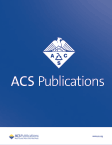摘要 PO1-03-08:患者报告的三阴性乳腺癌(TNBC)知识与参与临床试验的关系
IF 3.4
Q2 PUBLIC, ENVIRONMENTAL & OCCUPATIONAL HEALTH
引用次数: 0
摘要
背景:鉴于TNBC亚型乳腺癌缺乏靶向治疗方案,我们非常鼓励TNBC患者参与临床试验。然而,人们对这一人群参与试验的障碍知之甚少,包括患者对 TNBC 生物学知识的了解所产生的影响。我们研究了疾病知识和其他患者层面的因素是否与 TNBC 患者参与试验有关。研究方法从一项多中心、前瞻性队列研究中,我们对 2019 年至今入组的新诊断 TNBC 患者(ER/PR ≤10% 也符合条件)进行了调查,确定了至少完成了一项调查的 I-III 期肿瘤患者。调查评估了人口统计学、TNBC 知识、风险认知和临床试验参与情况。如果患者首先接受了手术治疗,则将其归入 A 组;如果患者接受了新辅助治疗,则将其归入 B 组。对病历进行审查,以核实患者报告的肿瘤特征的准确性。通过描述性统计对数据进行总结,并使用逻辑回归法确定与参与试验相关的因素。结果:在纳入的 137 名患者中,中位年龄为 56 岁(IQR 46-63),104 人(82%)为非西班牙裔白人,10 人(8%)为黑人,5 人(4%)为西班牙裔,110 人(86%)至少受过一些大学教育。总体而言,55 人(41%)的肿瘤为 I 期,65 人(48%)为 II 期,14 人(10%)为 III 期。在 116 名有临床试验参与数据的患者中,55 人(47%)报告参与了试验,59 人(51%)报告没有参与试验,2 人(2%)不确定。在 129 名有 TNBC 知识数据的患者中,分别有 82 人(64%)和 73 人(57%)正确报告了自己的肿瘤分期和分级。大多数患者(104/129,81%)知道 TNBC 被定义为 ER/PR/HER2 阴性,但只有 16%(21/128)的患者知道 ER/PR 阴性的临界值为≤1%。在98名有风险认知数据的患者中,30人(31%)估计自己未来5年内复发的可能性为0%,60人(61%)在10%-50%之间,8人(8%)在60%-100%之间。当被问及 3 年后仍未罹患癌症的 TNBC 患者是否最有可能不再复发时,44 人(45%)表示 "是",13 人(13%)表示 "否",40 人(41%)表示不确定。单变量分析显示,A 组患者参与试验的可能性较低(OR 0.42,95% CI 0.20 - 0.89,P=0.02),II 期患者参与试验的可能性较高(与 I 期相比,OR 2.43,95% CI 1.09 - 5.39,P=0.03)。在多变量分析中,与具有大学或更高学历的患者相比,至少受过一些大学教育的患者参与试验的几率更高(OR 3.21,95% CI 1.11 - 9.28,P=0.03)。其他因素,包括对TNBC的了解程度,均未发现相关性。结论在接受调查的TNBC患者中,约有半数表示参与了临床试验。这些患者中的大多数正在接受新辅助治疗,这可能反映出在这种情况下研究的可获得性更高。虽然在这个小样本中,TNBC知识与试验参与并无明显关联,但相当多的患者错误地报告了他们的肿瘤特征,和/或似乎低估了他们的复发风险。这凸显了在治疗决策过程中加强对 TNBC 患者信息支持的必要性。我们需要开展更多的研究来了解这一人群参与试验的障碍,从而提高患者的参与度,加快TNBC更有效治疗的进展。 引用格式:Megan Tesch、Noah Graham、Sean Ryan、Melissa Hughes、Eileen Wrabel、Nadine Tung、Steve Lo、Thomas Fynan、Meredith Faggen、Natalie Sinclair、Maria Constantinou、Sarah Sinclair、Nabihah Tayob、Nancy Lin、Ann Partridge、Eric Winer、Sara Tolaney、Ana Garrido-Castro。患者报告的三阴性乳腺癌(TNBC)知识与临床试验参与的关联[摘要]。In:2023 年圣安东尼奥乳腺癌研讨会论文集;2023 年 12 月 5-9 日;德克萨斯州圣安东尼奥。费城(宾夕法尼亚州):AACR; Cancer Res 2024;84(9 Suppl):Abstract nr PO1-03-08。本文章由计算机程序翻译,如有差异,请以英文原文为准。
Abstract PO1-03-08: Association of patient-reported triple-negative breast cancer (TNBC) knowledge with clinical trial participation
Background: Patients with TNBC are highly encouraged to participate in clinical trials given the lack of targeted treatment options for this breast cancer subtype. Yet little is known regarding barriers to trial participation in this population, including the impact of patients’ understanding about TNBC biology. We examined whether disease knowledge and other patient-level factors were associated with TNBC patients’ participation in trials. Methods: From a multicenter, prospective cohort study of patients enrolled from 2019-present with newly diagnosed TNBC (ER/PR ≤10% also eligible), we identified those with stage I-III tumors who completed at least one survey. Surveys assessed demographics, TNBC knowledge, risk perceptions, and participation in clinical trials. Patients were assigned to Cohort A if surgery was the first intervention and Cohort B if neoadjuvant therapy was given. Medical records were reviewed to verify the accuracy of tumor characteristics reported by patients. Data was summarized with descriptive statistics and logistic regression was used to identify factors associated with trial participation. Results: Of the 137 patients included, median age was 56 years (IQR 46-63), 104 (82%) were non-Hispanic White, 10 (8%) Black, 5 (4%) Hispanic. and 110 (86%) had at least some college education. Overall, 55 (41%) had stage I tumors, 65 (48%) stage II, and 14 (10%) stage III. Among 116 patients with available clinical trial participation data, 55 (47%) reported trial participation, 59 (51%) reported no trial participation, and 2 (2%) were unsure. The majority (36/55, 65%) of trial participants were in Cohort B. Among 129 patients with TNBC knowledge data, 82 (64%) and 73 (57%) correctly reported their tumor stage and grade, respectively. Most (104/129, 81%) knew TNBC was defined as ER/PR/HER2-negative, but only 16% (21/128) knew the ER/PR-negative cut off was ≤1%. Of 98 patients with risk perception data, 30 (31%) estimated their likelihood of recurrence within the next 5 years as 0%, 60 (61%) between 10-50%, and 8 (8%) between 60-100%. When asked if TNBC patients who remain cancer-free after 3 years will most likely not experience recurrence, 44 (45%) said “True,” 13 (13%) said “False,” and 40 (41%) were unsure. On univariate analysis, trial participation was less likely in Cohort A patients (OR 0.42, 95% CI 0.20 – 0.89, P=0.02) and more likely in stage II patients (vs. stage I, OR 2.43, 95% CI 1.09 – 5.39, P=0.03). On multivariable analysis, patients with at least some college education had higher odds of trial participation compared to patients with a college degree or higher (OR 3.21, 95% CI 1.11 – 9.28, P=0.03). No associations were found for other factors, including TNBC knowledge. Conclusions: About half of TNBC patients surveyed reported participating in clinical trials. Most of these patients were undergoing neoadjuvant therapy, likely reflective of greater study availability in this setting. While TNBC knowledge was not significantly associated with trial participation in this small sample, a considerable number of patients reported their tumor characteristics incorrectly and/or appeared to underestimate their recurrence risks. This highlights the need for enhanced informational support for TNBC patients during treatment decision-making. More research is needed to understand barriers to trial participation in this population to leverage patient engagement and accelerate progress towards more effective treatments for TNBC.
Citation Format: Megan Tesch, Noah Graham, Sean Ryan, Melissa Hughes, Eileen Wrabel, Nadine Tung, Steve Lo, Thomas Fynan, Meredith Faggen, Natalie Sinclair, Maria Constantinou, Sarah Sinclair, Nabihah Tayob, Nancy Lin, Ann Partridge, Eric Winer, Sara Tolaney, Ana Garrido-Castro. Association of patient-reported triple-negative breast cancer (TNBC) knowledge with clinical trial participation [abstract]. In: Proceedings of the 2023 San Antonio Breast Cancer Symposium; 2023 Dec 5-9; San Antonio, TX. Philadelphia (PA): AACR; Cancer Res 2024;84(9 Suppl):Abstract nr PO1-03-08.
求助全文
通过发布文献求助,成功后即可免费获取论文全文。
去求助
来源期刊

ACS Chemical Health & Safety
PUBLIC, ENVIRONMENTAL & OCCUPATIONAL HEALTH-
CiteScore
3.10
自引率
20.00%
发文量
63
期刊介绍:
The Journal of Chemical Health and Safety focuses on news, information, and ideas relating to issues and advances in chemical health and safety. The Journal of Chemical Health and Safety covers up-to-the minute, in-depth views of safety issues ranging from OSHA and EPA regulations to the safe handling of hazardous waste, from the latest innovations in effective chemical hygiene practices to the courts'' most recent rulings on safety-related lawsuits. The Journal of Chemical Health and Safety presents real-world information that health, safety and environmental professionals and others responsible for the safety of their workplaces can put to use right away, identifying potential and developing safety concerns before they do real harm.
 求助内容:
求助内容: 应助结果提醒方式:
应助结果提醒方式:


